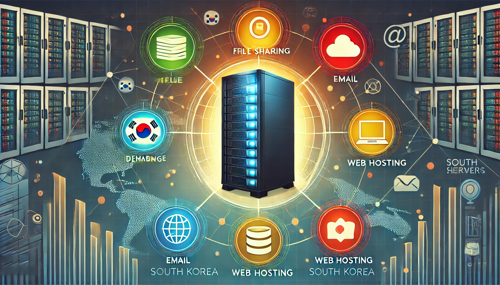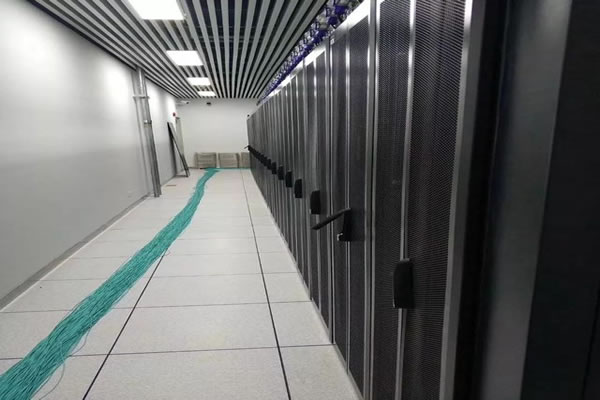
in the digital age, choosing a suitable server is crucial, especially for businesses looking to do business in the us market. american computer room servers are widely favored for their efficient performance and stable network connections. this article will discuss how to choose a us computer room server to ensure its efficient operation and thus support the long-term development of the enterprise.
understand server types
before choosing a us computer room server, you first need to understand the different types of servers. common types include shared servers, virtual private servers (vps), and dedicated servers. shared servers are suitable for small businesses and cost less, but have limited performance and security. vps offers higher performance and flexibility and is suitable for mid-sized businesses. dedicated servers provide the best performance and security and are suitable for large enterprises or applications with high resource requirements.
evaluate technical specifications
technical specifications are a key factor when choosing a computer room server. processor performance, memory size and hard disk type directly affect the operating efficiency of the server. for applications that require processing large amounts of data or complex operations, it is recommended to choose a high-performance multi-core processor, as well as sufficient memory and a fast ssd hard drive. at the same time, ensure that the server supports the latest operating systems and software environments to facilitate future expansion and compatibility.
network connection and bandwidth
the stability and bandwidth of your network connection is another important factor in ensuring your server operates efficiently. choosing a computer room located near a network hub can reduce latency and increase data transmission speed. in addition, ensure that the selected computer room server provides sufficient bandwidth to meet traffic needs and avoid slow access speeds and degraded user experience caused by insufficient bandwidth. typically, choosing a computer room with redundant network connections also improves reliability.
security and data protection
security is a factor that cannot be ignored during the server selection process. ensure that the computer room servers provide comprehensive security measures, including firewalls, intrusion detection systems (ids), and data encryption. in addition, understanding the physical security measures of the computer room, such as video surveillance, access control systems, and fire protection facilities, can effectively reduce the risk of data leakage and physical damage. choosing a computer room with compliance certification can also enhance trust in data protection.
customer support and service quality
the quality of customer support is equally important when choosing a server. excellent customer support can quickly provide solutions when problems are encountered to avoid business interruption. make sure the computer room provides 24/7 technical support, as well as multiple contact methods (such as phone, online chat, and email). understanding the commitments in the service level agreement (sla) regarding fault response time and resolution time is also an important indicator for evaluating service quality.
scalability and flexibility
as your business grows, business needs may continue to change. therefore, when choosing a us computer room server, it is important to consider its scalability and flexibility. choose a server that supports on-demand scaling, allowing you to quickly add resources when traffic surges without having to move to a new server. at the same time, choose a computer room that provides flexible configuration options, and you can adjust the server specifications and service content according to actual needs.
cost benefit analysis
while cost should not be the only factor in choosing a server, conducting a cost-benefit analysis is still necessary. comprehensively consider the initial investment, maintenance costs and expected returns of the server, and choose a server solution with a high cost-effectiveness. in addition, pay attention to hidden charges, such as traffic overage charges, additional support charges, etc., to ensure that you make reasonable decisions within your budget.
summary and suggestions
choosing a server is a complex process that requires consideration of multiple factors to ensure efficient operation. from understanding the different types of servers, evaluating technical specifications, network connectivity, security, customer support, to scalability, every step is critical. it is recommended that enterprises conduct sufficient market research before making decisions, and choose the most appropriate server solution based on their own needs and budget. at the same time, maintain good communication with suppliers to receive timely support when needed.
- Latest articles
- Comprehensive Analysis Of The Concept And Practical Application Of Taiwan’s Native Ip
- Advantages And Application Scenarios Of Us Cdn High-defense Servers
- Tips And Practices For Selecting International Vps Routes In Vietnam
- Comprehensive Analysis Of The Experience Of Using CN2 VPS In Malaysia
- Comparative Analysis Of Vietnam Cn2 Vps And Other Types Of Servers
- How To Choose A Us Computer Room Server To Ensure Efficient Operation
- Residential Server Malaysia Experience Sharing
- How To Use Hong Kong Cn2 And Share Best Practices
- How To Choose Alibaba Cloud Hong Kong Vps Transfer Service
- Malaysia Cloud Server Buying Guide And Recommendations
- Popular tags
-
Large Bandwidth US High-defense Servers Help Stabilize Traffic During Peak Periods
Discuss how large-bandwidth American high-defense servers provide stability and security during peak traffic periods to ensure the normal operation of the website. -
Analysis Of The Characteristics Of American CN Server And Its Applicable Scenarios
This article analyzes the characteristics and applicable scenarios of US CN servers to help users better choose the right server. -
Analysis Of The Advantages And Usage Scenarios Of The Entire IP Of The US Site Group
This article will analyze the advantages and usage scenarios of the entire IP of the US site group to help you understand how to use this technology to improve SEO results.


